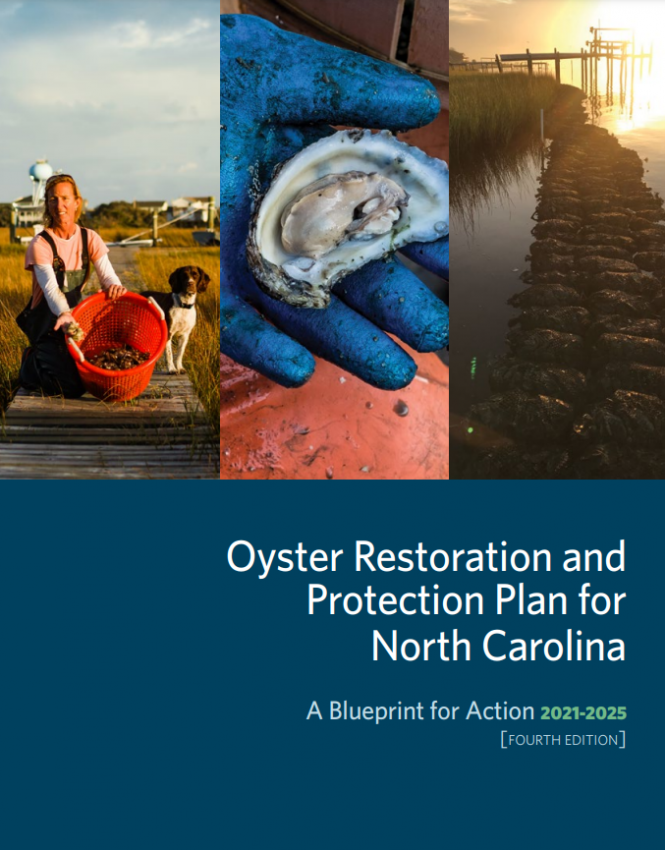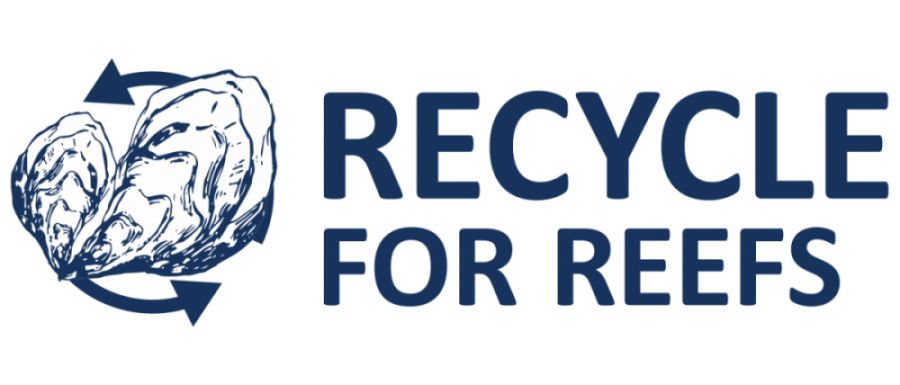Our native eastern oyster (Crassostrea virginica) is one of the most important species in our estuaries. Oysters benefit North Carolina’s coastal ecology and economy. These benefits can be summarized and referred to as the three “Fs”, for short: food, filter, and fish habitat. They filter water, provide food for humans and create reefs that build homes for more fish. These environmental benefits, in turn, support jobs and provide economic opportunities for coastal communities.
Oysters in Trouble
Oyster populations, worldwide, are at record lows. Despite some recovery in recent years, in North Carolina, it is estimated that oysters are at about 15-20% of historic harvest levels. Oyster harvest is currently the best measure of the oyster population in our state.
Oysters are at historic lows because of poor water quality, disease and predation, habitat loss, natural disasters, low recruitment, and increased harvest pressure.
Bringing Oysters Back
We’re taking action to build back North Carolina’s oyster resources. Learn more about how we’re working and how you can engage with us to ensure North Carolina boasts thriving oysters that support the coastal environment and economy.
Eastern oysters provide these benefits free of charge.
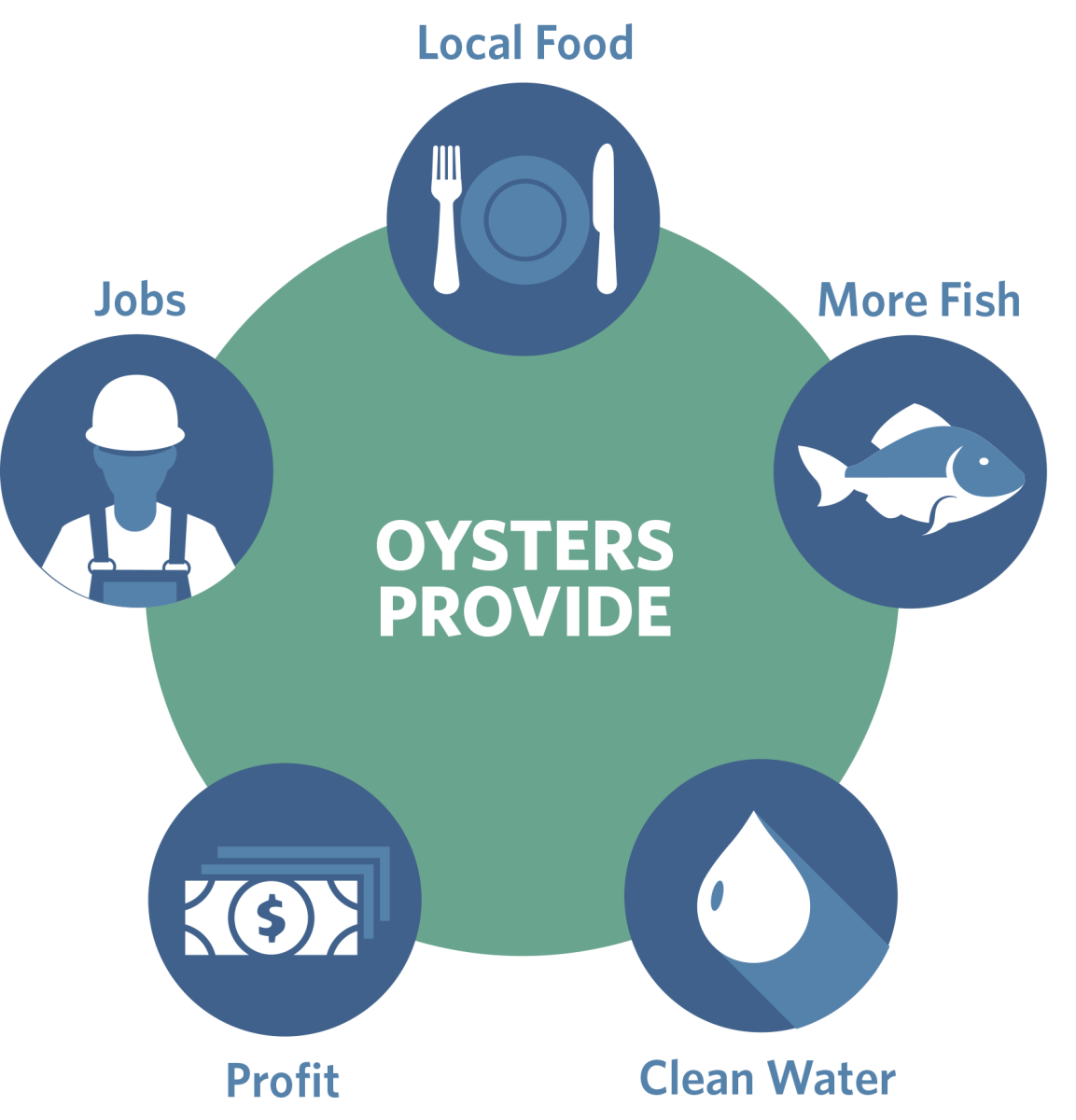
FOOD
Oysters support a viable commercial and recreational fishery that is an important part of North Carolina’s cultural heritage and economy. Oyster reefs support the production of more crabs and finfish valued at over $62 million annually.
FILTER
As filter feeders, oysters remove harmful pollutants, sediment, and excess algae from the water. An adult is capable of filtering up to 50 gallons of water a day. As oysters filter, they also provide an important link in the estuarine food web by transferring nutrients from the surface (plankton) to the bottom (benthos).
FISH HABITAT
Oyster reefs provide essential habitats for a diverse collection of aquatic animals, including many important commercial and recreational fish species. One healthy oyster reef can be home to more than 300 different adult and juvenile organisms including southern flounder, shrimp, clams, and blue crabs.
Oyster Life Cycle Informs Restoration Strategies
Building new oyster reefs is one of the key strategies used to revive North Carolina’s oyster population.
Native or wild oysters produce free-floating oyster larvae. These baby oysters require a hard surface to attach to and grow upon within two weeks or they will not survive. Because of this, many restoration efforts concentrate on providing a suitable hard surface for the larvae. The oyster life cycle provides a glimpse into how oysters grow and informs how restoration efforts can be successful. Restoration efforts have been underway since the 1990s but more work is still needed.
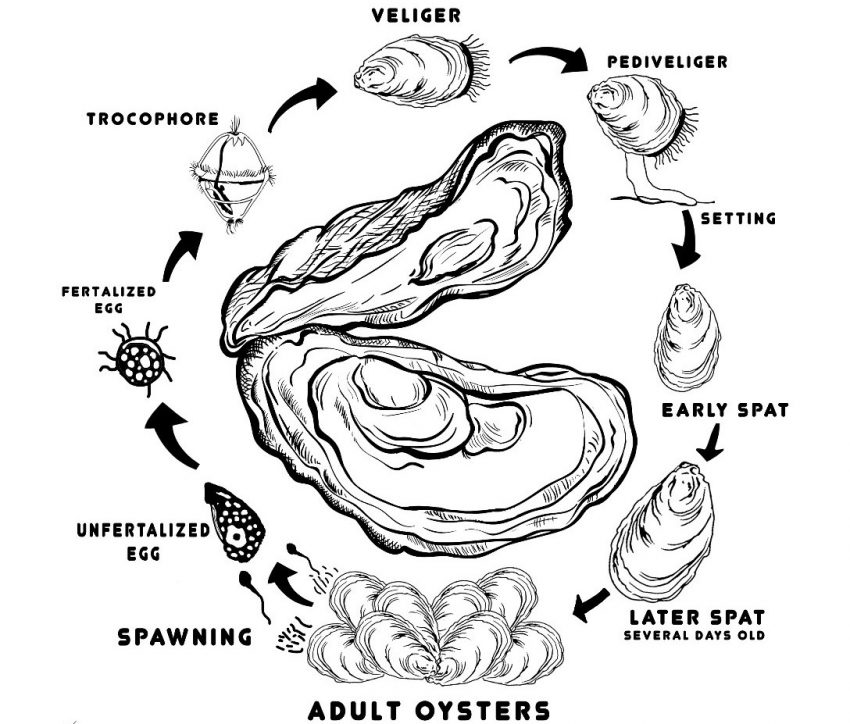
Partner and Collaborate
Partnerships are Key
When it comes to oysters, the Federation has led a volunteer-based, coastwide Oyster Steering Committee since 2003. This committee brings together diverse stakeholders to develop a set of common goals and actions to be realized in building back our state’s oyster resources.
These priority goals and actions are the basis of the strategic North Carolina Oyster Blueprint, currently in its fourth edition. Committee members help to prioritize and implement the agreed-upon actions. By working together, projects are based on science, strategically implemented, and strive to engage a diverse group of partners.
National Significance
Several of the priority actions in the Oyster Blueprint are recognized for complementing and supporting the National Oceanic and Atmospheric Administration’s Shellfish Initiative. To that end, in 2018, the state of North Carolina joined this national initiative as the 6th state in the country, and first in the southeast. The Shellfish Initiative recognizes the importance of partnering with shellfish farmers and shellfish restoration organizations with the goal of increasing populations of bivalve shellfish in our nation’s coastal waters—including oysters, clams, and mussels—through both sustainable commercial production and restoration activities.
We invite you to learn more about the oyster steering committee, the strategic oyster blueprint document, or the state’s engagement with the national shellfish initiative.
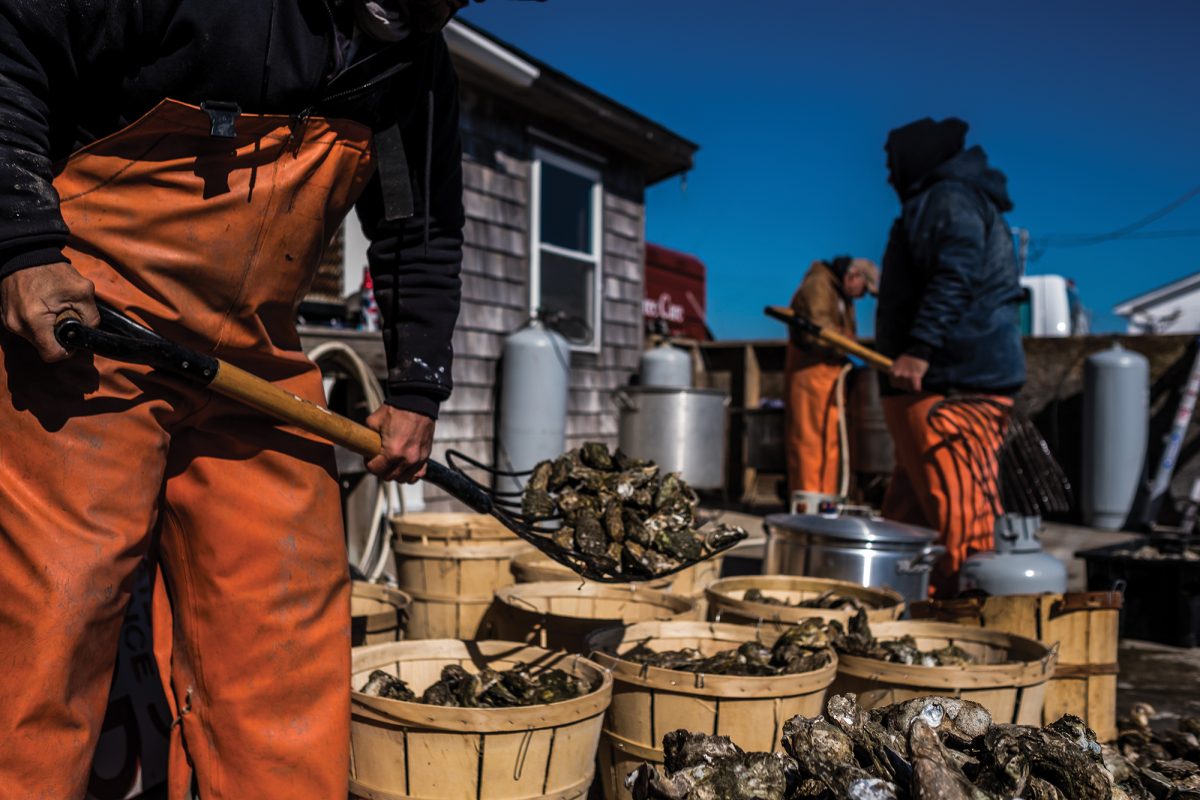
Oysters in 2025
In 2025, the Federation and its partners have big plans. We continue to make great strides in implementing the NC Oyster Blueprint- the statewide effort that outlines bold actions that the Federation and partners are taking to advance oyster restoration, protection, growing, harvesting, and education efforts in the state. This work is being assisted with over $16 million in National Oceanic and Atmospheric Administration grant funds and state appropriations. These funds will allow us to construct at least 100 acres of new oyster habitat. Additional state appropriations and grants are supporting the state’s first aquaculture hub development- a collective space that will support shellfish growers with waterfront access, gear storage, refrigeration, and other land-based support for their operations. In 2025, we will continue to expand our shell recycling efforts to collect at least 6,000 bushels of recycled oyster shells and complete an evaluation of opportunities to expand the recycling program to new areas of the state. Furthermore, key oyster communication and education efforts that include the N.C. Oyster Trail and an interactive oyster display at the Roanoke Island Aquarium will continue to be supported.
2024 Highlights
acres of new oyster habitat built
million oysters monitored with the oyster sanctuary
bushels of shell recycled along the coast
Featured Projects
The Coastal Federation is working to restore wild oyster populations by recycling oyster shells and putting those shells back into the water.
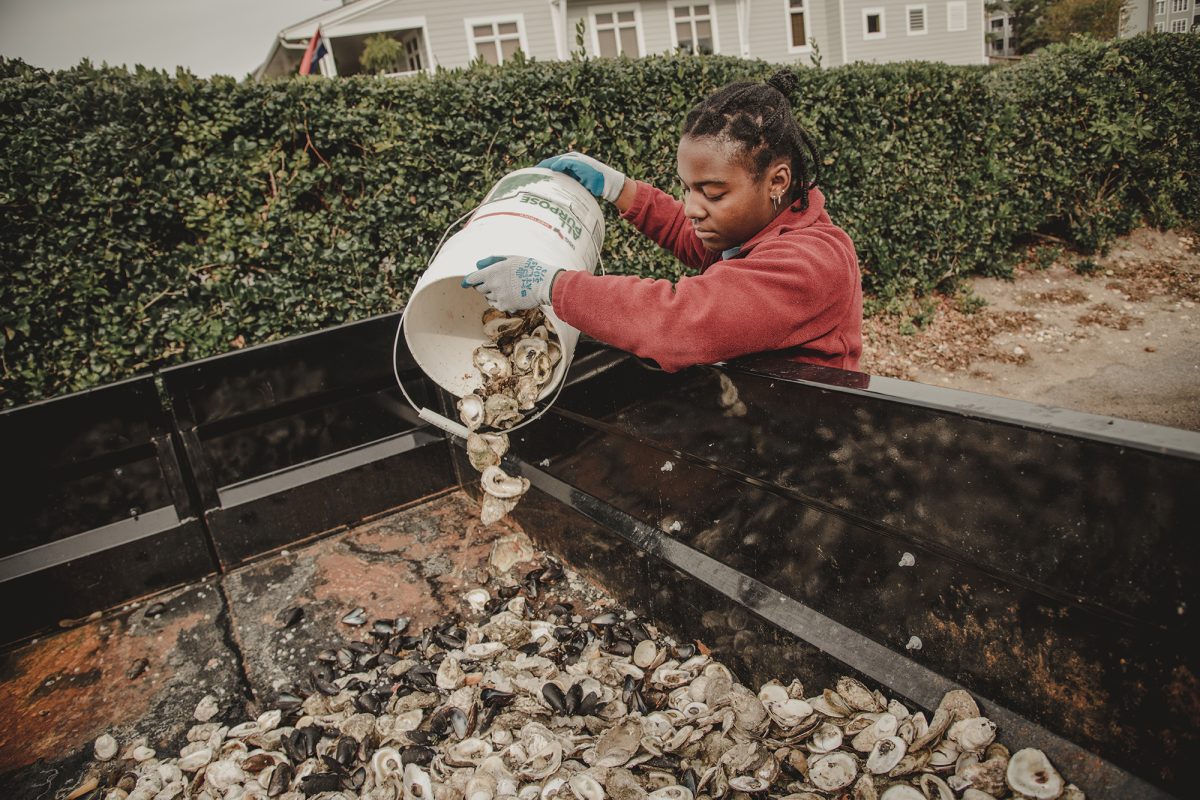
How You Can Help
- Join the Federation and support oyster restoration efforts.
- Recycle your oyster shells and ask your favorite restaurants to do so, too.
- Adopt an Oyster to provide support for new reef-building activities.
- Encourage your local government to take action to prevent stormwater runoff, the biggest polluter of coastal waters.
- Volunteer on a community-based restoration project.
- Become a shell recycling volunteer on the Outer Banks through our Restaurant to Reef program.
Oyster Resources
Contact Erin Fleckenstein, erinf@nccoast.org, with any questions about the Oyster Steering Committee or to get involved in this coastwide effort.
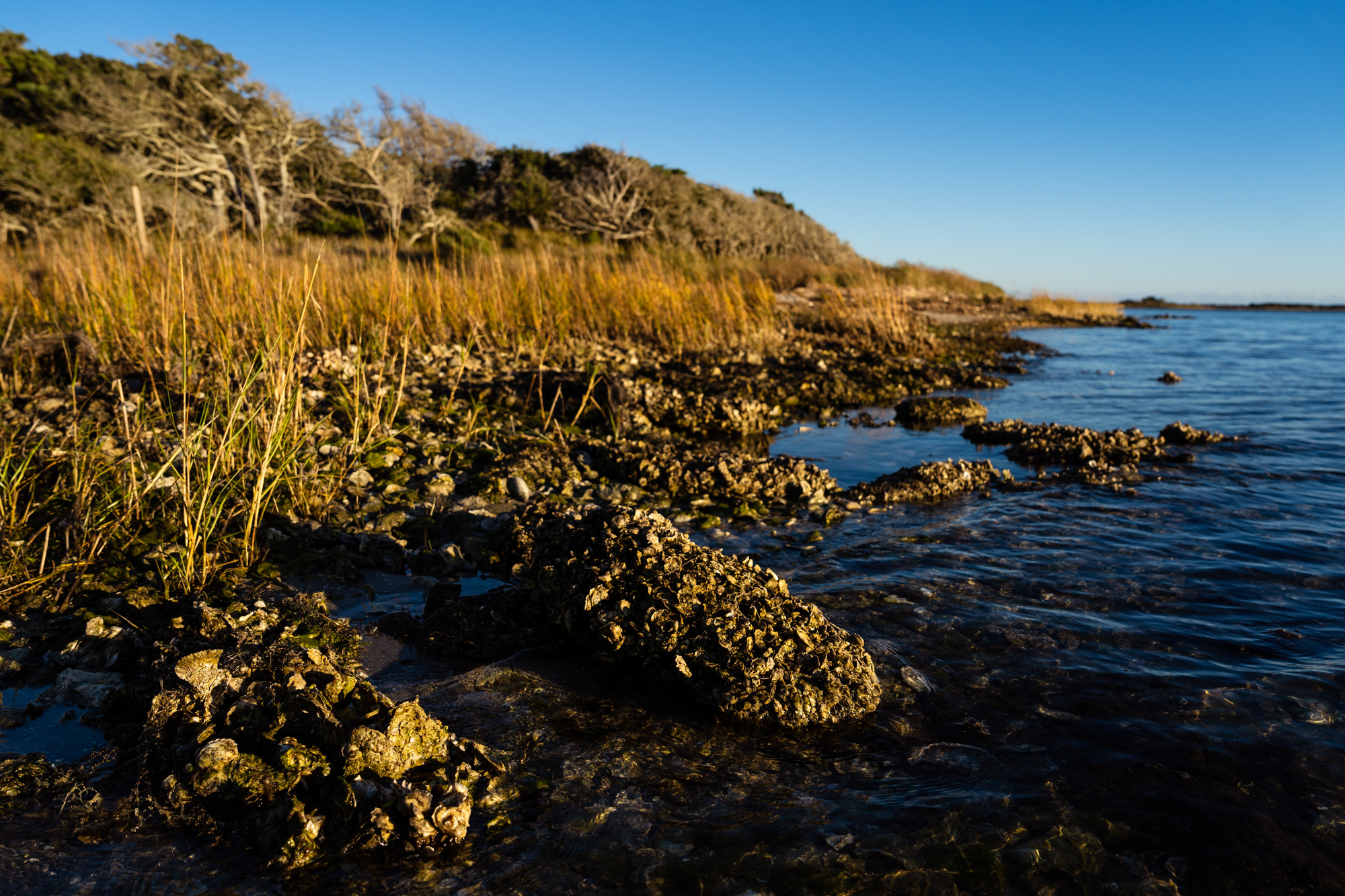
The Restoration Continues
You can support even more oyster restoration by Adopting an Oyster.

